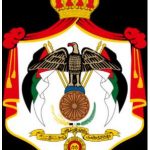Jordan is a young society: one third of the population is under 15 years of age, two thirds are under 29 years of age. Many young people are very well educated. But there are not enough jobs and the income is often not even enough for transport to work.
Alphabetized adults: 96% (2020)
Major religions: Islam 97%, Christianity 2%, other 1%
Urban population: 88% (2020)
Life expectancy (female / male): 74/76 years (2020)
Gender Inequality Index: Rank 109 of 162 (2019)
Number of births: 2.7 / woman (2019)
Infant mortality: 12.8 / 1000 live births (2020)
According to homosociety, the Hashemite Kingdom of Jordan (Arabic al-mamlaka al-‘urdunniya al-hashimiya) is located in Western Asia at latitude 31 ° north and longitude 36 ° east. The Jordanian national territory extends over an area of 92,300 square kilometers and is therefore roughly the size of Austria.
Social structure and social situation
Jordanian society is highly structured vertically and horizontally. The middle class is proportionally larger than in other countries in the region. But overall wealth is very unevenly distributed and the income gap has widened further in recent years.
Ethnic, religious and tribal identities run across class in Jordan. The main politically influential groups include:
- Influential business families (mostly Palestinian)
- Military and security forces (often Circassian, partly Bedouin)
- Influential farming families, large landowners (predominantly East Jordanian, partly Palestinian)
- Technocrats, high officials (often Palestinian, partly Caucasian)
The leading social classes in Jordan are closely connected to the Hashemite ruling house. The association of some particularly wealthy or influential Palestinian families with the Hashemite dynasty can be traced back to the 1920’s-1930’s (see Oliver Wils’ study of bureaucrat-entrepreneur networks in Jordan). In Jordan, large families (Arabic hamula, ´aschira, qabila) are of great social, economic and political importance. The family name can be crucial when it comes to jobs, income, or access to other resources. Family cohesion is also strong due to cousin marriage, which is still common despite many reservations.
Gender Data
Gender-segregated data on education, employment and political representation in Jordan can be found in the annual “Gender Gap Report” of the World Economic Forum in Davos. In the 2020 report, Jordan ranks far behind in 138th place out of 154. Further information can be found at the UN organization “UN Women”. The national statistical authority also publishes statistics on gender segregation.
Anti-Discrimination Convention CEDAW
Jordan has ratified the CEDAW – albeit like most Arab and Islamic countries with restrictions, since Jordan does not want to see some of its laws as discrimination against women, but as part of the cultural and religious (Arab-Islamic) identity. Jordan has not yet ratified the optional protocol to the CEDAW of 2000.
Access to education and political participation improved, low employment rate
Access to formal education for women and girls has improved significantly in Jordan. The literacy rate for boys and girls is almost 100 percent; According to statistics, even more girls than boys manage to graduate from high school and university. One third of the students in the natural sciences and technical faculties in Jordan are female, and almost half in the medical subjects. Women are also more represented in politics than before. Thanks to a quota, there are now at least 15 female MPs in parliament. In contrast, there is a comparatively low level of participation in the labor market. Only 15% of Jordanian women of the corresponding age are employed.
Changes in values, but conservatism dominates
Even if Jordan has no legal gender segregation and no obligation to wear a veil: Beyond the differences between urban and rural areas, and across social boundaries, Jordan’s population is considered conservative. The patriarchal family is still the linchpin of the social order. In the course of globalization and the spread of digital media, it is becoming apparent that traditional values are increasingly being called into question. In the capital Amman in particular, there is a change in cultural values to observe. The detachment from the family and from traditional values does not always lead to more freedom and liberalism, but can also lead to religious extremism. Dealing with intra-family and gender-based violence is an important indicator of the change in values. For a long time the subject was taboo. It is now publicly discussed and in 2018 a shelter for women at risk was set up in Amman.
High birth rate, motherhood dominates
The reality of life is shaped by patriarchal ways of thinking and discriminatory laws. One expression of the patriarchal mentality is the pronounced cultural preference for male descendants. According to surveys, most Jordanians would prefer male babies to female babies in order to keep their family name. According to Jordanian sociologists and women’s rights activists, this attitude is also one of the reasons for the still high birth rate with an average of 2.8 children per woman. The World Bank does assume that most women in Jordan want a maximum of 2 children and of course Jordanian families are happy to have daughters. In most cases, however, family planning is only considered complete when the woman has given birth to at least two sons.








